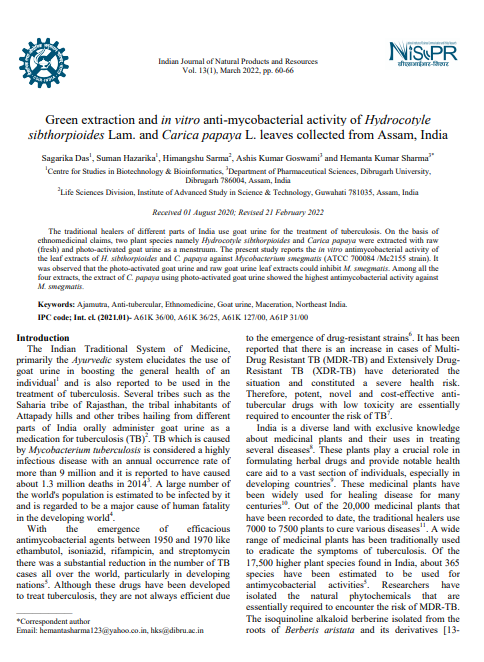Musa balbisiana Colla-Taxonomy, Traditional Knowledge and Economic Potentialities of the Plant in Assam, India
Publication Year: 2016
Author(s): Borborah K, Borthakur SK, Tanti B
Abstract:
The traditional use of herbs as potential source of food and medicine is well observed among the ethnic groups in different zones of the world. Musa balbisiana Colla, is a robust herb, commonly known as Bhimkol or Athiyakol in Assamese and not a single part of the plant is wasted in the state of Assam, India. Here, this plant is regarded as an asset of household garden and people use various parts of the plant in their daily life as well as in every rites and rituals. As such, this plant has an immense economic potentiality in this region of North East India. A brief summary of the taxonomy, traditional uses of the plant/plant parts and products, based on extensive field observation from different parts of Assam has been documented in the present paper.
Source of Publication: Indian Journal of Traditional Knowledge
Vol/Issue: 15 (1),116-120 pp.
Country: India
Publisher/Organisation: NISCAIR-CSIR
URL:
https://nopr.niscpr.res.in/bitstream/123456789/33567/1/IJTK%2015%281%29%20116-120.pdf
Theme: Traditional/ Indigenous Knowledge | Subtheme: Social Knowledge
Related Documents
Research Papers/Articles

Ethnomedicinal Uses of Barks in Jalgaon District
Published Year: 2007
Abstract:
The ethnobotanical surveys were conducted during June 1997 to 2004 in Jalgaon district of Maha... Read More
Research Papers/Articles

Abstract:
The traditional healers of different parts of India use goat urine for the treatment of tuberc... Read More



